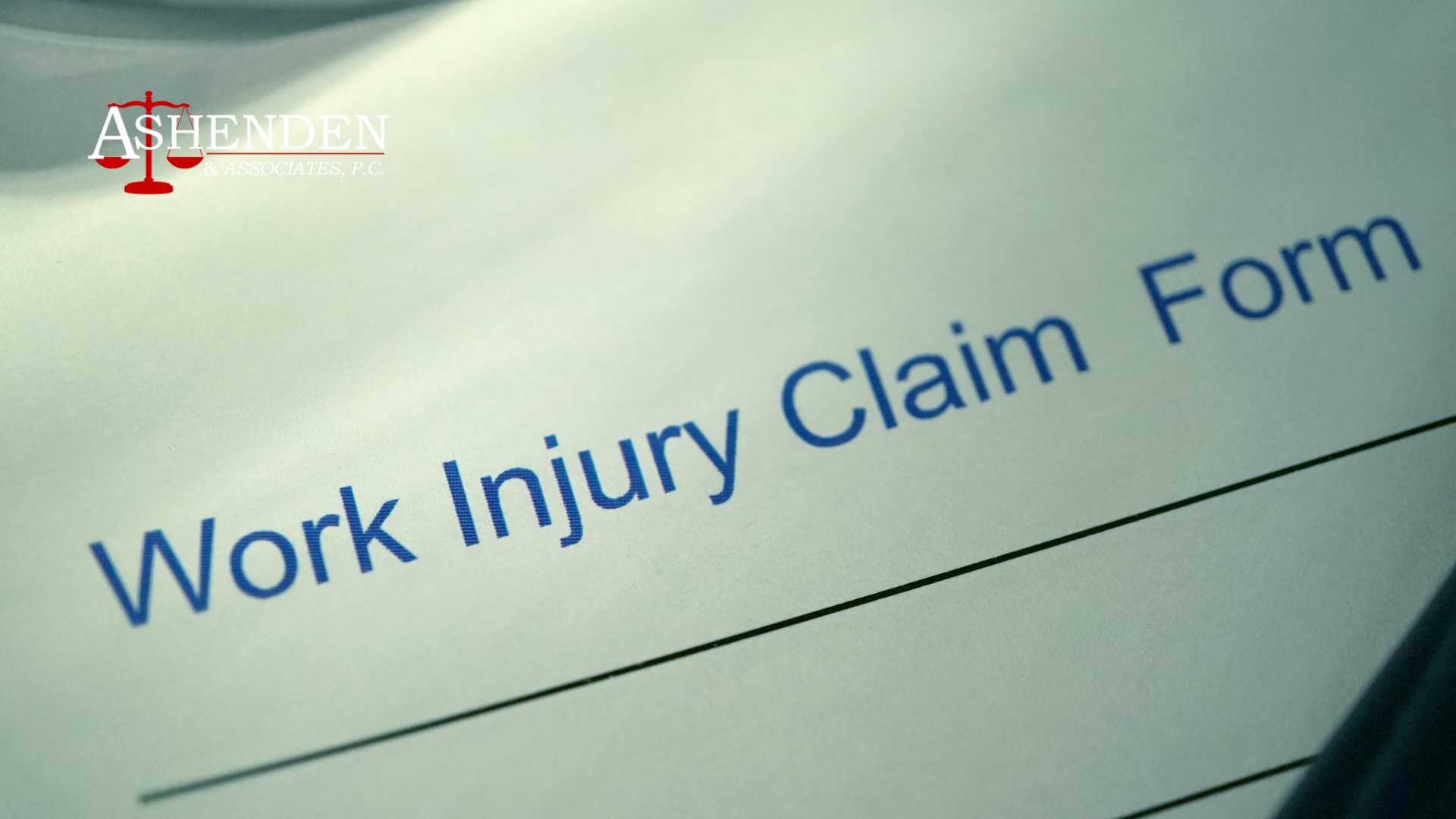Georgia workers’ compensation laws are designed to protect injured employees by providing benefits for lost wages and medical treatment after workplace injuries. If you’re dealing with a workers comp case, understanding legal rights is essential to securing fair compensation or workers’ compensation settlements. Our Sandy Springs work injury lawyers can guide you through the process, ensuring that your workers’ comp case is handled correctly and that you receive the workers’ compensation benefits needed for your recovery.
Important Georgia Workers Compensation Laws

Georgia Workers Compensation Act
The Georgia Workers’ Compensation Act is the primary law governing workers’ comp benefits in the state. It ensures that employees with work-related injuries receive medical care, wage replacement, and other benefits without filing lawsuits against their employers. The Georgia workers’ compensation law applies to most businesses in Georgia with three or more employees, requiring them to be a worker’s compensation insurance carrier.
Under Georgia workers’ compensation laws, an injured employee must notify their employer of the injury and file a workers’ compensation claim promptly to receive benefits. Covered expenses include medical treatment, rehabilitation costs, and partial wage replacement during recovery. If an employee suffers a permanent disability or death, additional compensation is available to the worker or their dependents.
The Workers’ Compensation Act also limits an employee’s ability to sue their employer directly, providing the employer immunity from civil lawsuits for work-related injuries. Instead, disputes over benefits are resolved through Georgia’s workers compensation law, often overseen by an administrative law judge.
While the Act provides essential protections, navigating its rules and procedures can be complex, making legal guidance from an experienced workers’ compensation attorney crucial for injured workers seeking to receive workers’ compensation benefits to which they’re entitled.
Subsequent Injury Trust Fund (N/A After 2006)
The STIF stopped accepting new claims after July 1, 2006, but it continues to reimburse eligible claims filed before that date. The fund helps the employer and insurance company manage the financial burden of workers’ compensation cases where a workplace injury combines with a pre-existing condition to create greater disability.
Georgia State Board of Workers' Compensation Rules and Regulations
The Georgia State Board of Workers’ Compensation is the governing body responsible for administering and enforcing the state’s workers’ compensation laws. The primary role of the Georgia State Board of Workers’ Compensation is to ensure that an employee with a workplace injury is able to receive workers compensation benefits to which they are entitled to under the Workers’ Compensation Act, while also protecting employers from excessive liability through a structured system.
Responsibilities of the Georgia State Board of Workers’ Compensation include:
- The Georgia State Board of Workers’ Compensation oversees every workers’ compensation claim process, ensuring that the injured worker files his or her workers compensation claim correctly and that the employer and workers compensation insurance carrier responds promptly. It also maintains records of claims and decisions.
- The Georgia State Board of Workers’ Compensation provides a formal process for resolving disputes between the injured employee, employer, and insurance company. This includes mediation services to encourage settlements and formal hearings before an administrative law judge when disputes cannot be resolved.
- The Georgia State Board of Workers’ Compensation ensures that employers meet their legal obligations by maintaining proper workers’ compensation insurance coverage. It investigates reports of noncompliance and imposes penalties or sanctions on employers who fail to adhere to Georgia workers’ compensation law.
- The Georgia State Board of Workers’ Compensation offers training, publications, and resources to educate employers, employees, and medical providers about their rights and responsibilities under Georgia’s workers’ compensation system.
- The Georgia State Board of Workers’ Compensation establishes and enforces medical treatment guidelines, including approving every authorized treating physician and reviewing disputes related to medical care.
- The Georgia State Board of Workers’ Compensation oversees every workers’ compensation insurance carrier as well as self-insured employers to ensure they comply with state regulations, process claims in a timely manner, and ensure injured workers have workers compensation benefits paid in an appropriate manner.
The Georgia State Board of Workers’ Compensation ensures the workers compensation system operates efficiently by:
- Reviewing disputes over wage benefits or medical treatment.
- Conducting hearings to address unresolved claims.
- Administering rules and procedures to maintain uniformity in claims handling.
- Assisting in the resolution of penalties and appeals.
The Georgia State Board of Workers’ Compensation plays a vital role in balancing the needs of employees and employers, maintaining a fair and efficient workers’ compensation system in Georgia.
Georgia Workers' Compensation Assigned Risk Insurance Plan
The Georgia Workers’ Compensation Assigned Risk Insurance Plan is a program that ensures employers who cannot secure workers compensation insurance in the regular market can still obtain the coverage required by law. This program assigns these employers to a participating workers compensation insurer that agrees to provide workers comp insurance coverage under specific conditions.
Employers often turn to this plan when they are deemed high-risk or have a history of claims that make them ineligible for standard workers comp insurance policies. The assigned insurance company provides the necessary workers compensation insurance coverage, but premiums are usually higher than those by a workers compensation insurer in the voluntary market due to the elevated risk level associated with these businesses.
The plan ensures that all employers can fulfill their legal obligation to provide workers’ compensation insurance, protecting both employees and employers.
Georgia Workers Compensation Law By Industry and Type
In Georgia, workers’ compensation laws apply to various types of employment categories, each with specific provisions and exceptions. Here are the different types of workers and how Georgia’s workers’ compensation laws apply to them:
State Employees
State employees in Georgia are covered under the Georgia Workers’ Compensation Act, ensuring they receive medical benefits, wage replacement, and vocational rehabilitation services for work-related injuries or illnesses. This includes employees with an on-the-job injury in government agencies, education, and other state-funded positions.
Part-Time Employees
Under Georgia workers compensation law, part-time employees are generally entitled to receive workers’ compensation benefits for an on-the-job injury. Eligibility is determined by the employment relationship rather than the number of hours worked. Employers with at least three employees, including part-time workers, are required to carry workers compensation insurance. Part-time employees can receive benefits for medical treatment, lost wages, and other covered expenses, just like full-time workers, as long as their injury occurred during the course of their employment.
Temporary Workers
According to Georgia workers’ compensation law, temporary workers are typically entitled to receive workers’ compensation benefits if the employee’s injury occurred while performing job-related duties. If a temporary worker is hired directly by a company, that company is responsible for providing workers’ compensation insurance coverage.
However, if the injured worker was employed through a staffing agency, the agency is usually the one required to carry workers’ compensation insurance. Temporary workers have the same rights as full-time employees when it comes to getting workers’ compensation benefits for medical treatment, lost wages, and disability, as long as the employee’s injury occurred during their employment.
Corporate Officers and LLC Members
Corporate officers and LLC members may opt out of workers comp insurance for themselves but are included by default under Georgia’s workers compensation law. Employers in these categories must explicitly file to exclude themselves if they do not want coverage.
Truck Drivers and Transportation Workers
Under Georgia workers’ compensation laws, truck drivers and transportation workers may be entitled to receive benefits if they sustain a workplace injury while performing job-related duties. Eligibility largely depends on whether the worker is classified as an employee or an independent contractor.
For company-employed drivers, employers are required to provide workers comp insurance, covering any work-related injury sustained during tasks such as loading, unloading, driving, or performing maintenance. Workers compensation benefits cover medical expenses, wage replacement, and disability benefits.
Independent contractors, such as owner-operators, are generally not covered under Georgia workers’ compensation laws unless they are misclassified and can prove they functioned as employees. Truck drivers working across state lines may encounter additional considerations if the employee’s injury occurs outside Georgia, as the applicable workers’ compensation laws could vary.
In cases where third parties are responsible for the injury—such as in a collision caused by another driver—the injured worker may also be able to file a personal injury claim in addition to seeking workers’ compensation.
Contact our Sandy Springs commercial truck accident lawyer team for a free consultation to learn more.
Georgia Workers Compensation Laws Exclusions
In Georgia, while most employees are covered by workers’ compensation, certain groups are excluded from mandatory coverage under state law. Here are the categories of individuals who are not typically covered by workers’ comp in Georgia:
Independent Contractors
Under Georgia workers compensation laws, independent contractors are generally not covered by workers’ compensation insurance because they are not classified as employees. Employers are only required to provide workers’ compensation insurance for individuals who are officially considered employees. This distinction often leaves independent contractors responsible for their own medical costs and lost wages if they sustain a workplace injury.
However, if an independent contractor is misclassified and performs work under the direct control and supervision of the employer—similar to an employee—they may have grounds to argue for workers’ compensation benefits. This could include situations where the employer dictates work hours, provides equipment, or has significant control over how the job is performed.
Understanding the terms of employment and Georgia workers’ compensation laws can help independent contractors navigate their rights and responsibilities in the event of a work-related injury.
Farm Workers
Farm workers are often excluded from mandatory workers’ compensation insurance under Georgia workers’ compensation laws due to historical and economic considerations. When Georgia workers’ compensation laws were first established, legislators sought to protect smaller farms from the financial burden of providing workers’ compensation insurance, arguing that requiring workers comp coverage for farm laborers would impose significant costs that could threaten the viability of these small operations.
Also, the Georgia State Board of Workers’ Compensation would have a difficult time applying standardized workers’ compensation insurance requirements for those who employ farm workers.
As a result, employers who hire farm laborers were not mandated to provide workers’ comp benefits unless they chose to do so voluntarily.
However, farm workers have some legal recourse, but it is limited compared to workers in other industries covered under Georgia workers’ compensation laws. While they are typically excluded from workers’ compensation benefits, they may be able to file a personal injury lawsuit under certain conditions.
When farm laborers are injured due to an employer’s negligence or third-party negligence, such as a contractor or manufacturer, they can file a personal injury lawsuit. Unlike a workers’ compensation claim, which does not require proof of fault, lawsuits require demonstrating that the at-fault party’s negligence directly caused the injury.
Farm laborers who are unsure how to go around a workers comp case can contact our personal injury attorneys in Sandy Springs for a free consultation.
Domestic Workers
Household employees, such as nannies, maids, or caregivers, are also excluded from mandatory workers’ comp coverage unless their employer elects to provide it.
Business Owners and Corporate Officers
Owners, corporate officers, and LLC members can choose to opt out of workers’ compensation insurance coverage. By default, they are included but may formally exclude themselves from coverage.
Federal Employees
Federal employees in Georgia are not covered under Georgia workers’ compensation laws. Instead, they are protected by the Federal Employees’ Compensation Act (FECA), which does provide workers comp benefits for federal workers who suffer a workplace injury or illness. This law applies to employees of federal agencies, including postal workers, federal law enforcement officers, and other government personnel.
- Medical Services Benefits: Federal employees are entitled to full coverage for medical expenses related to their work injury or illness, including doctor visits, hospital care, surgeries, and rehabilitation.
- Wage Replacement: FECA provides wage replacement benefits at 66 2/3% of the employee’s average weekly wage if they have no dependents, or 75% if they have dependents, without a cap on benefits.
- Disability Benefits: If a federal worker suffers a permanent partial or total disability, they may receive long-term disability benefits based on the severity of their condition.
- Death Benefits: The dependents of a deceased federal employee may receive death benefits, including funeral expenses and ongoing financial support.
- No-Fault System: Similar to Georgia workers’ compensation law, FECA operates on a no-fault basis, meaning injured federal employees do not need to prove their employer’s negligence to receive benefits.
Railroad Workers
Railroad employees are covered under the Federal Employers Liability Act (FELA), which provides compensation (listed directly above) for work-related injuries but operates separately from Georgia workers’ compensation laws.
Volunteers
Volunteers are generally not covered under Georgia workers’ compensation laws because they are not considered employees. Exceptions may exist if the organization chooses to extend coverage.
Maritime Workers
Longshoremen and other maritime workers are covered under federal laws like the Longshore and Harbor Workers’ Compensation Act, rather than Georgia’s workers’ comp system.
If you’re an injured workers struggling with a workers comp case, contact our Sandy Springs boat accident lawyers for a free consultation.
Small Business Employees
Employees of businesses with fewer than three employees are not covered because workers compensation law in Georgia only requires employers to provide workers’ comp if they employee three or more workers.
Seasonal Workers
Seasonal workers are generally entitled to the same protections as full-time employees under the workers compensation law in Georgia, provided their employer has three or more employees. Employers who meet this threshold are required to carry a workers compensation policy that covers all eligible employees, including seasonal employees, for work-related injuries.
For seasonal workers, eligibility for workers’ compensation benefits depends on whether the accident occurred during the course of their employment while performing such services as required by their job duties. For example, seasonal employees injured while picking crops or stocking shelves during a busy retail season would likely qualify for benefits.
If disputes arise over whether seasonal employees are eligible for workers comp insurance coverage, the workers’ compensation claim is resolved through hearings overseen by administrative law judges, who assess the employment relationship, the nature of the injury, and compliance with workers’ compensation law in Georgia. Ensuring that employers provide proper coverage for seasonal employees is crucial to protecting the rights and well-being of Georgia’s seasonal workers.

Is Workers Comp Required in Georgia?
Yes, workers compensation insurance is required in Georgia for most businesses. According to the State Board of Workers’ Compensation, any employer with at least three employees, including part-time workers, must provide workers’ compensation insurance. This ensures that those with a workplace injury receive medical benefits, wage replacement, and other necessary support.
Employers who fail to provide workers comp insurance may face penalties, including fines and potential lawsuits, as mandated by the State Board of Workers’ Compensation. Businesses can obtain workers compensation insurance through a private insurance company, a group self-insurance fund, or by becoming self-insured if they meet specific financial criteria.
Employers are encouraged to work with an experienced insurance company to maintain compliance with Georgia law.
What Does Workers’ Comp Cover in Georgia?
Our attorneys explain how workers’ compensation law applies to various workers’ compensation benefits. The following list isn’t always included in workers comp cases, however, we’ll address whether or not workers compensation serves to benefit an injured employee or if it doesn’t apply under Georgia workers comp laws.
Medical Benefits
Medical benefits cover necessary medical expenses for a work-related injury, including doctor visits, hospital stays, surgeries, physical therapy, medications, and approved medical services, if seen by an authorized treating physician. Under Georgia workers compensation laws, workers compensation benefits paid will continue to cover medical costs as long as the medical treatment is deemed necessary and related to the employee’s injury.
Disability Benefits
Disability benefits include payments for a temporary or permanent disability. Temporary total disability benefits are available after seven days of missed work and continue until the injured worker can return to the job or reaches maximum medical improvement (MMI). Permanent partial disability benefits are paid if the injured worker has a lasting impairment, based on the type and severity of the disability.
Indemnity Benefits
Indemnity benefits under Georgia workers’ compensation laws provide financial compensation to an injured worker who is unable to work due to a work-related injury. In Georgia, indemnity benefits are designed to replace a portion of the worker’s lost wages during recovery.
Payments begin after a seven-day waiting period, meaning the injured employee will not receive compensation from the indemnity benefits for the first seven days of missed work unless their time off exceeds 21 days. If an on-the-job injury causes the worker to miss work for more than 21 days, the payments become retroactive, and the worker will be compensated for the initial seven days of lost wages.
Indemnity benefits are typically calculated as two-thirds of the injured worker’s average weekly wage, up to maximum limits ($800/week). These payments continue until the worker returns to work, reaches maximum improvement, or exhausts the maximum duration, which is generally up to 400 weeks for a non-catastrophic work-related injury or a lifetime for a catastrophic on-the-job injury. Indemnity benefits ensure financial stability for workers as they recover from their injuries.
Weekly Benefits
Under Georgia workers compensation laws, an injured worker is entitled to two-thirds of their average weekly wage, up to the state maximum (typically $800/week), in temporary total disability benefits. These workers compensation benefits can last up to 400 weeks in non-catastrophic cases or a lifetime in catastrophic cases.
Income Benefits
According to Georgia workers’ compensation laws, income benefits replace lost income for an injured employee who returns to work in a limited capacity and earns less than their pre-injury wages. Temporary partial disability benefits can last up to 350 weeks from the date of the employee’s injury.
Death Benefits
Under Georgia workers compensation laws, financial support to dependents of workers who die from workplace injuries. Dependents receive weekly payments equivalent to two-thirds of the deceased worker’s average weekly wage, up to a state maximum, for up to 400 weeks or until dependents (such as a spouse) remarry. Funeral expenses are also covered up to $7,500.
Our workers’ compensation attorney team will cover this in detail later.
Social Security Benefits
Workers’ compensation benefits may overlap with social security benefits, but total benefits could be reduced to avoid exceeding a legal limit.
Unemployment Benefits
Unemployment benefits are not directly covered under any Georgia workers’ compensation statute. Workers receiving temporary total disability benefits are typically not eligible for unemployment benefits simultaneously.
How Long Does Workers’ Comp Last in Georgia?
The duration of workers’ compensation benefits in Georgia depends on the severity of the injury and the type of workers comp benefits awarded under the Georgia workers’ compensation statute.
Temporary total disability benefits typically last up to 400 weeks from the date of injury, as outlined in the Georgia workers’ compensation statute, while temporary partial disability benefits are limited to 350 weeks. If the injury is classified as catastrophic, such as paralysis or severe brain injury, benefits may continue while the injured worker is living.
For a workers comp case involving workers’ compensation settlements, the duration is negotiated between the injured worker, the employer, and the workers comp insurance carrier. Once workers’ compensation settlements are reached, the employee may receive a lump sum payment or structured payments, which finalize the workers compensation claim.
The role of a managed care organization may also affect how long workers’ compensation benefits last, as these organizations coordinate medical treatment and ensure ongoing medical care for workers injured on the job. The duration of workers’ compensation benefits ultimately depends on the recovery process, the classification of the injury, and the terms of workers’ compensation settlements.
How Much Does Workers’ Comp Pay in Georgia?
In Georgia, workers’ compensation benefits are designed to provide financial support to employees who suffer on-the-job injuries or illnesses. The amount and duration of workers comp benefits depend on the nature and severity of the injury.
Amount: two-thirds of their average weekly wage, up to a maximum of $800 per week for injuries occurring on or after July 1, 2023.
Duration: Benefits can continue for up to 400 weeks from the date of injury unless the injury is deemed catastrophic, in which case benefits may be extended.
Amount: If the worker can return to work in a limited capacity and earns less than before the injury, they may receive two-thirds of the difference between their pre-injury and post-injury wages, up to a maximum of $533 per week.
Duration: These benefits are available for up to 350 weeks from the date of injury.
Amount: Once a worker reaches maximum medical improvement (MMI) and is left with a permanent impairment, they may receive benefits based on the impairment rating assigned by the authorized treating physician. The weekly benefit amount is the same as TTD benefits.
Duration: The number of weeks benefits are paid depends on the body part affected and the degree of impairment, as specified in Georgia’s workers’ compensation schedule.
Amount: Dependents may receive two-thirds of the deceased worker’s average weekly wage, up to the same maximums as TTD benefits.
Duration: Benefits are paid to a surviving spouse until remarriage or for a maximum of 400 weeks. Dependent children may receive benefits until they reach 18 years of age or 22 if enrolled full-time in college.
For the most current information, consulting the Georgia State Board of Workers’ Compensation or a workers compensation attorney is advisable.
How Are Workers Compensation Benefits Paid in Georgia?
In Georgia, workers comp benefits are paid directly to cover medical costs and lost wages for employees with on-the-job injuries, with oversight from the Georgia State Board of Workers Compensation.
Payments for medical expenses are issued to industrial clinics and healthcare providers for medical treatment authorized by the employer’s authorized treating physician, who oversees the worker’s medical care and necessary referrals for medical services.
Wage replacement benefits are paid weekly to the employee, calculated as two-thirds of their average weekly wage, subject to limits outlined by workers’ compensation law in Georgia. The Georgia State Board of Workers Compensation ensures timely and accurate payments while resolving disputes through mediation or hearings if disagreements arise regarding eligibility for workers comp insurance coverage, medical treatment, or the amount of workers comp benefits amounts.
Georgia Board of Physicians
This is used most commonly as an authorized treating physician from a board of workers’ compensation-approved physicians examines the injured worker to determine the extent of the work-related injuries sustained. Only two of the authorized treating physician teams can be from industrial clinics. Additionally, Georgia’s workers’ compensation laws require that at least one authorized treating physician must be an ethnic or racial minority when possible.
Georgia Workers' Compensation Managed Care Organization
The Managed Care Organization is certified to create the plan under the Georgria Workers’ Compensation Act. In Georgia, the Managed Care Organization is the sole judge if injured workers’ employers select this option.

Can You Sue a Co-Worker for an Injury in Georgia?
When an on-the-job injury is covered under the Georgia Workers’ Compensation Act, the injured employee cannot sue a co-worker for negligence. Georgia workers’ compensation law provides an exclusive remedy for injuries sustained on the job, protecting employees who work for the same employer from lawsuits filed by their colleagues. This is designed to streamline compensation for injuries while limiting litigation among co-workers under the state’s workers’ compensation laws.
However, exceptions may apply if the employee’s injury results from a co-worker’s intentional misconduct or if the co-worker and the injured worker do not share the same employer, such as in a joint venture involving multiple parties.
In disputes over workers compensation insurance or exceptions, an administrative law judge may determine whether a lawsuit is permissible or if receiving workers’ compensation benefits remains the exclusive remedy. Understanding these legal nuances ensures injured employees know their rights and obligations in their workers comp case.
What Happens if the Injury Leads to Death?
In Georgia, workers’ compensation provides financial support to the dependents of employees who die due to injuries at work. The maximum weekly benefit for dependents is two-thirds of the deceased employee’s average weekly income, capped at $525 per week.
Our wrongful death lawyers in Sandy Springs can assist in filing a workers’ compensation claim, or if the employee’s death was caused by third-party negligence, we’ll pursue a wrongful death lawsuit.
Georgia Workers Compensation Death Benefits
Death benefits under Georgia workers’ compensation laws are designed to provide financial support to the dependents of an employee who dies as a result of a work-related injury or illness. There are specific rules based on the employee’s marital and parental status.
Who is Eligible For Workers' Compensation Death Benefits in Georgia
- Surviving Spouse with Dependents: The surviving spouse is the primary beneficiary and shares the death benefits with dependent children, if applicable. Benefits continue until the spouse remarries or cohabitates or until the spouse reaches age 65 or after 400 weeks of benefits, whichever provides the greater benefit.
- Surviving Spouse Without Dependents: The total compensation is capped at $150,000.
- Single Employee with Children: The dependent children receive the full death benefits, divided equally among them.
- Single Employee without Dependents: If there are no eligible dependents, no death benefits are paid, but the employer is still responsible for covering funeral and burial expenses.
Typically, an ex-wife cannot receive death benefits under Georgia workers’ compensation laws unless she qualifies as a dependent of the deceased employee at the time of death.
How Much are Workers Compensation Death Benefits in Georgia
Weekly benefits equal two-thirds of the deceased employee’s average weekly wage, up to the state-mandated maximum ($800 per week).
Benefits are paid directly to the eligible dependents.
How Long Do Benefits Last?
- Surviving spouse with no children: benefits end after 400 weeks or upon remarriage, whichever comes first. A remarriage triggers a lump sum payment equivalent to two years of benefits.
- Dependent children: benefits continue until the children reach the age of 18, or 22 if enrolled full-time in college.
- Disabled child: benefits may continue indefinitely if the child remains dependent.
Funeral Expenses
In addition, Georgia workers’ compensation benefits cover funeral and burial expenses up to $7,500.
How Long Do You Have to File a Worker’s Comp Claim in Georgia?
In Georgia, you must file a workers’ compensation claim within one year of the date of your workplace accident or illness, as required by workers’ compensation law in Georgia. Failing to meet this deadline can result in losing the right to receive workers comp benefits.
However, workers must report the injury to employers within 30 days of the accident to ensure eligibility for a workers’ compensation claim. This may be extended in rare cases, such as when the employer provides medical treatment related to the injury.
Adhering to these timelines is crucial to protecting your rights under the Georgia workers’ compensation statute of limitations and ensuring access to medical care and wage replacement.
Consulting a workers’ compensation attorney can help you navigate the process.
What Happens If An Employer Does Not Report an Accident to Workers’ Comp in Georgia?
In Georgia, if an employer fails to report a workplace accident to their workers’ compensation insurance provider or the enforcement division of the Georgia State Board of Workers’ Compensation, they may face penalties and legal consequences.
Employers are required to report injuries that result in medical expenses or lost work time. If an employer does not comply, the employee can still file a workers’ compensation claim directly with the Georgia State Board of Workers’ Compensation.
Additionally, the safety fire commissioner, who oversees workplace safety regulations, may investigate the employer’s failure to comply.
Employees should document injuries and seek immediate assistance from a workers’ compensation attorney if their employer doesn’t report their accident.
What Happens If Your Employer Refuses to Pay Workers Compensation in Georgia?
If your employer refuses to pay workers compensation in Georgia, you have the right to take legal action through the Georgia State Board of Workers’ Compensation. Employers with more than three employees are required by workers compensation laws in Georgia to carry workers compensation insurance.
If they fail to provide workers’ compensation insurance coverage or deny your workers’ compensation claim unjustly, you can file a claim directly with the Georgia State Board of Workers’ Compensation.
The Georgia State Board of Workers’ Compensation may investigate the employer’s refusal and impose penalties or fines if the employer is found non-compliant. Additionally, you may be entitled to workers comp benefits through the state’s enforcement mechanisms, even if the employer has no workers compensation insurance. Seeking assistance from an experienced workers’ compensation attorney can help ensure you receive the medical care and wage replacement benefits you are entitled to under workers’ compensation law.
How our Sandy Springs Workers Compensation Law Firm Can Help
Our Sandy Springs workers’ compensation attorney team helps injured workers navigate the complexities of workers’ compensation law in Georgia. From filing claims to negotiating workers’ compensation settlements, we ensure you receive the medical benefits and wage replacement you’re entitled to. With extensive experience in Georgia’s workers’ compensation system, our law firm provides personalized guidance to help you recover and move forward.

